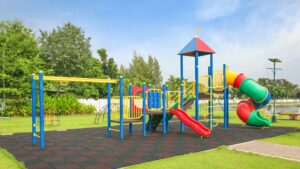Introduction: The Importance of Outdoor Play for Kids
In today’s digital age, children are spending more time indoors, often engaged with screens. However, outdoor play remains one of the most important activities for a child’s physical, social, and cognitive development. From improving physical health to fostering creativity, outdoor play is essential for building well-rounded, healthy children. In this article, we’ll explore the key benefits of outdoor play and why it should be a priority in every child’s routine.
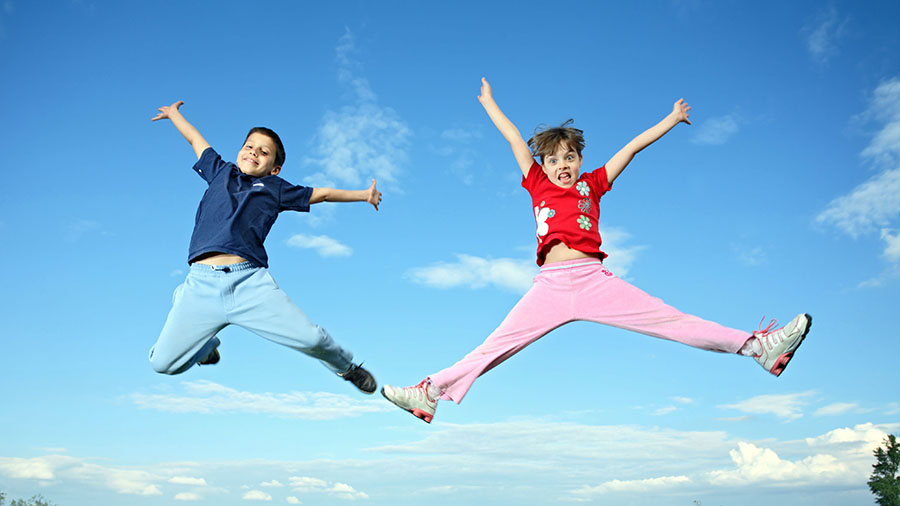
Physical Benefits of Outdoor Play
Physical activity is one of the primary benefits of playing outdoors. In an age where sedentary lifestyles are becoming more common, outdoor play offers a much-needed opportunity for children to be active and improve their overall health.
Improves Physical Health
Outdoor activities such as running, climbing, and jumping help children develop strong muscles and bones. These activities also improve coordination, balance, and flexibility.
- Strengthens the heart: Regular outdoor play helps to improve cardiovascular health by engaging children in active exercises like running or playing games like tag.
- Boosts immunity: Exposure to natural elements, such as sunlight and fresh air, strengthens the immune system, which can reduce the likelihood of illnesses.
Enhances Motor Skills
Physical play outdoors encourages children to practice their fine and gross motor skills. For example, activities like biking, playing on a jungle gym, or playing catch can improve hand-eye coordination and overall muscle control.
- Gross motor skills: Activities like running, jumping, or climbing help develop larger muscles and coordination.
- Fine motor skills: Outdoor play often involves more intricate movements such as building sandcastles, playing with outdoor toys, or using climbing ropes. These actions help develop dexterity and precision.
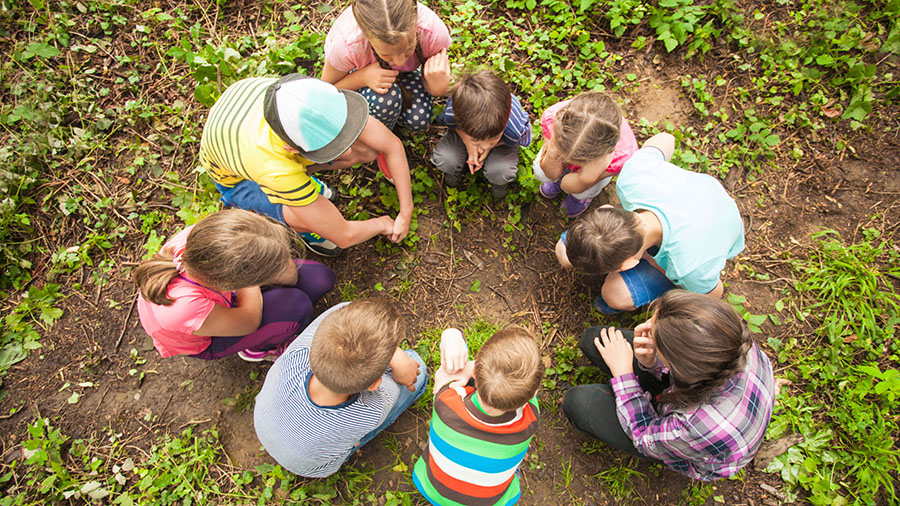
Social Benefits of Outdoor Play
Outdoor play not only nurtures physical health but also plays a crucial role in social development. When children play outside, they interact with others, helping them develop key social skills that are vital for building relationships and functioning in society.
Encourages Teamwork and Cooperation
Outdoor games such as soccer, basketball, or even playing in groups foster teamwork. Children learn how to collaborate with others, take turns, and resolve conflicts during play, all of which are essential life skills.
- Conflict resolution: During outdoor play, disagreements can arise. These situations teach children how to negotiate, listen, and compromise.
- Leadership skills: Playing group games also offers opportunities for kids to develop leadership abilities, whether it’s leading a team in a game or organizing group activities.
Builds Communication Skills
Outdoor play naturally encourages conversation and verbal interaction. Children learn to express their ideas, emotions, and opinions, fostering better communication skills. Whether it’s collaborating on a game or simply talking with friends, outdoor play offers ample opportunities for kids to practice their speaking and listening abilities.
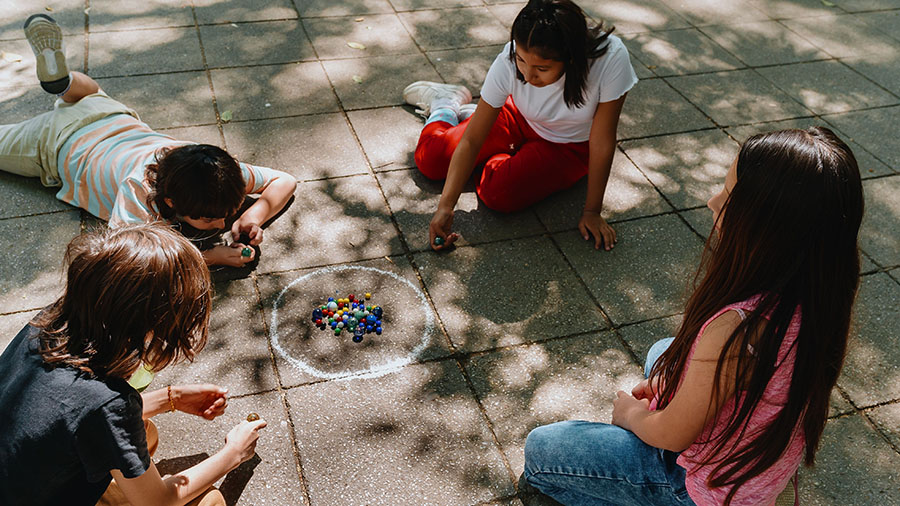
Cognitive Benefits of Outdoor Play
In addition to physical and social development, outdoor play provides cognitive benefits that are equally important in a child’s growth. Engaging in outdoor activities stimulates the brain and encourages creativity, problem-solving, and learning.
Boosts Creativity and Imagination
Outdoor play provides children with the freedom to explore their surroundings and use their imagination. Whether they’re pretending to be explorers, creating a pretend village, or making art with nature, outdoor environments offer endless possibilities for imaginative play.
- Exploration and curiosity: Nature encourages children to observe and ask questions about the world around them, which enhances their problem-solving skills and creativity.
- Free play: Unstructured outdoor play gives children the autonomy to come up with their own ideas, fostering creativity and innovation.
Enhances Focus and Academic Performance
Regular outdoor play has been shown to improve a child’s attention span and ability to concentrate. Physical activity helps to release endorphins, which can improve mood and focus.
- Improved academic performance: Studies have shown that children who spend more time playing outdoors often perform better academically. The increased concentration and improved mood contribute to better learning outcomes.
- Problem-solving skills: Outdoor play often involves challenges, such as figuring out how to climb a tree or complete an obstacle course. These activities help children develop critical thinking and problem-solving skills.
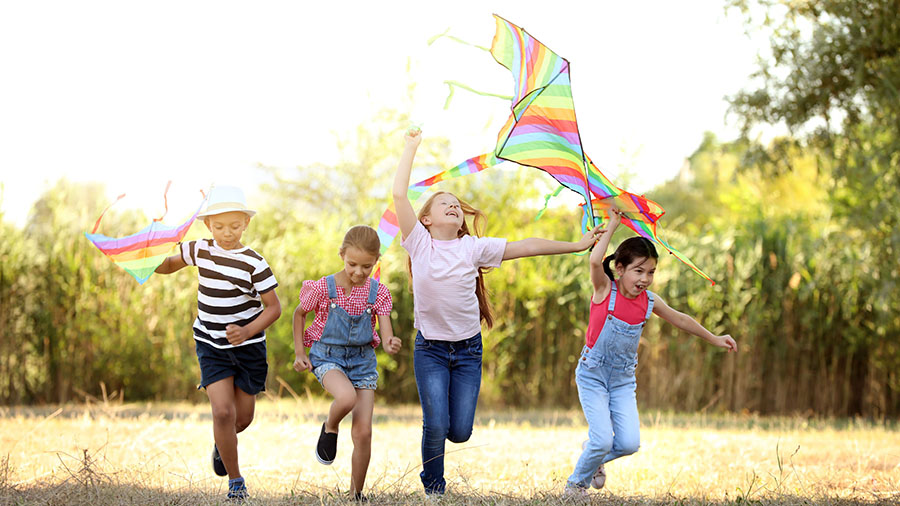
Outdoor Play and Mental Health
Mental health is just as important as physical health, and outdoor play has been shown to positively impact children’s mental well-being.
Reduces Stress and Anxiety
Spending time outdoors can reduce the stress and anxiety that children may experience from daily pressures or screen time. The calming effect of nature helps children feel more relaxed and emotionally balanced.
- Exposure to sunlight: Sunlight triggers the production of serotonin, a chemical that helps regulate mood and promotes a sense of well-being.
- Connection with nature: Being in nature has been shown to reduce feelings of anxiety and stress, promoting mental clarity and emotional calm.
Increases Self-Esteem and Confidence
Outdoor play allows children to challenge themselves in a safe and controlled environment. Whether they’re mastering a new skill or completing a challenging physical task, the sense of achievement boosts confidence and self-esteem.
- Physical challenges: Climbing, running, and exploring help children test their limits and feel accomplished.
- Autonomy: Playing outdoors gives children more freedom to make decisions and navigate their environment, fostering a sense of independence.

Creating Safe and Stimulating Outdoor Play Spaces
For children to enjoy the full benefits of outdoor play, it’s important to provide safe, accessible, and stimulating play environments. High-quality outdoor playground equipment, such as slides, swings, and climbing structures, can encourage physical activity and social interaction.
Choosing the Right Playground Equipment
When designing outdoor play spaces, it’s essential to choose equipment that is age-appropriate, durable, and safe. Outdoor slides, for example, can offer an exciting and safe way for children to engage in active play.
Designing Inclusive Playgrounds
Inclusive playgrounds cater to children of all abilities, ensuring that every child has access to the benefits of outdoor play. This may include equipment that accommodates children with physical disabilities or sensory needs.
Conclusion: Outdoor Play is Essential for Kids’ Development
Outdoor play is not just a fun activity for kids – it’s a vital component of their growth and well-being. From physical fitness to social skills, outdoor play offers numerous benefits that cannot be replicated indoors. As we work to create better play spaces for children, it’s crucial to remember that the time they spend outdoors is an investment in their future.
Interested in designing a safe and engaging outdoor play area for kids? Contact us today to learn more about our high-quality outdoor playground equipment and create a space that promotes growth and development for children.


